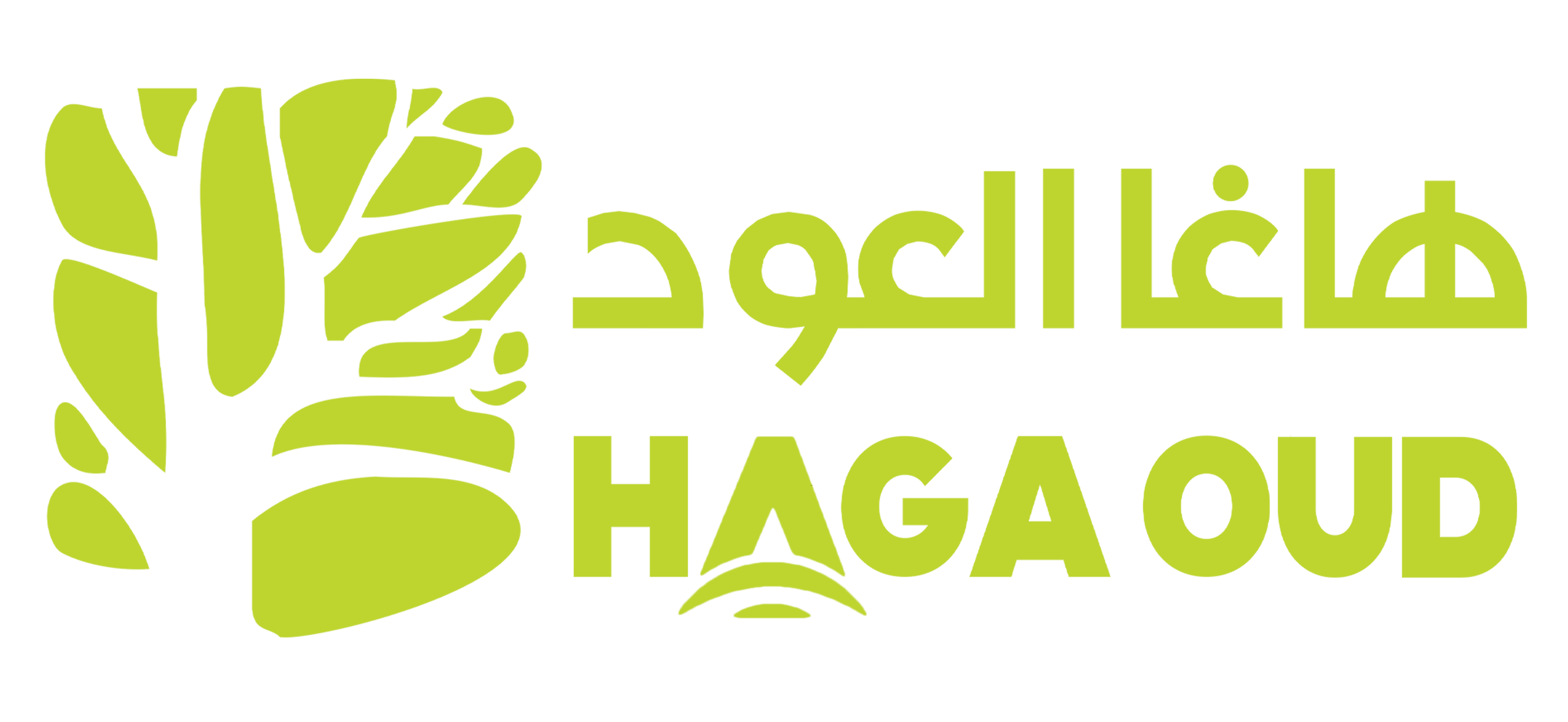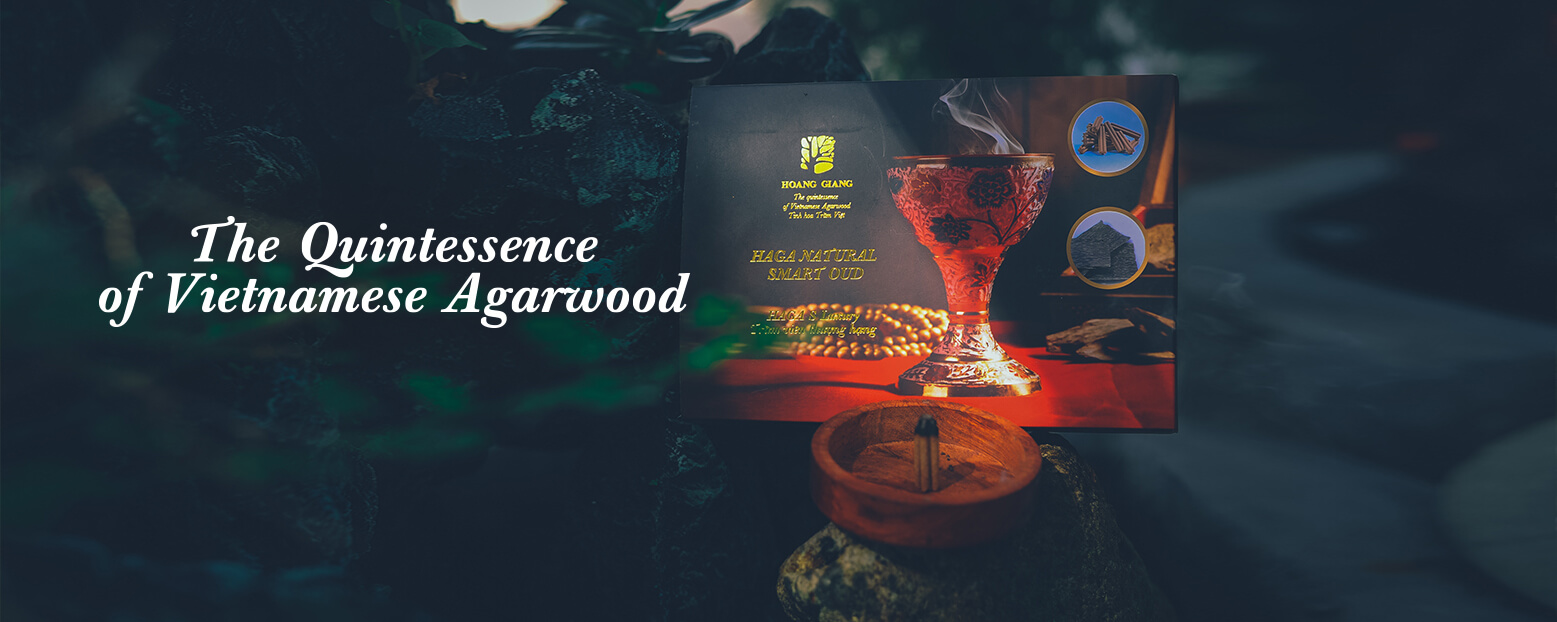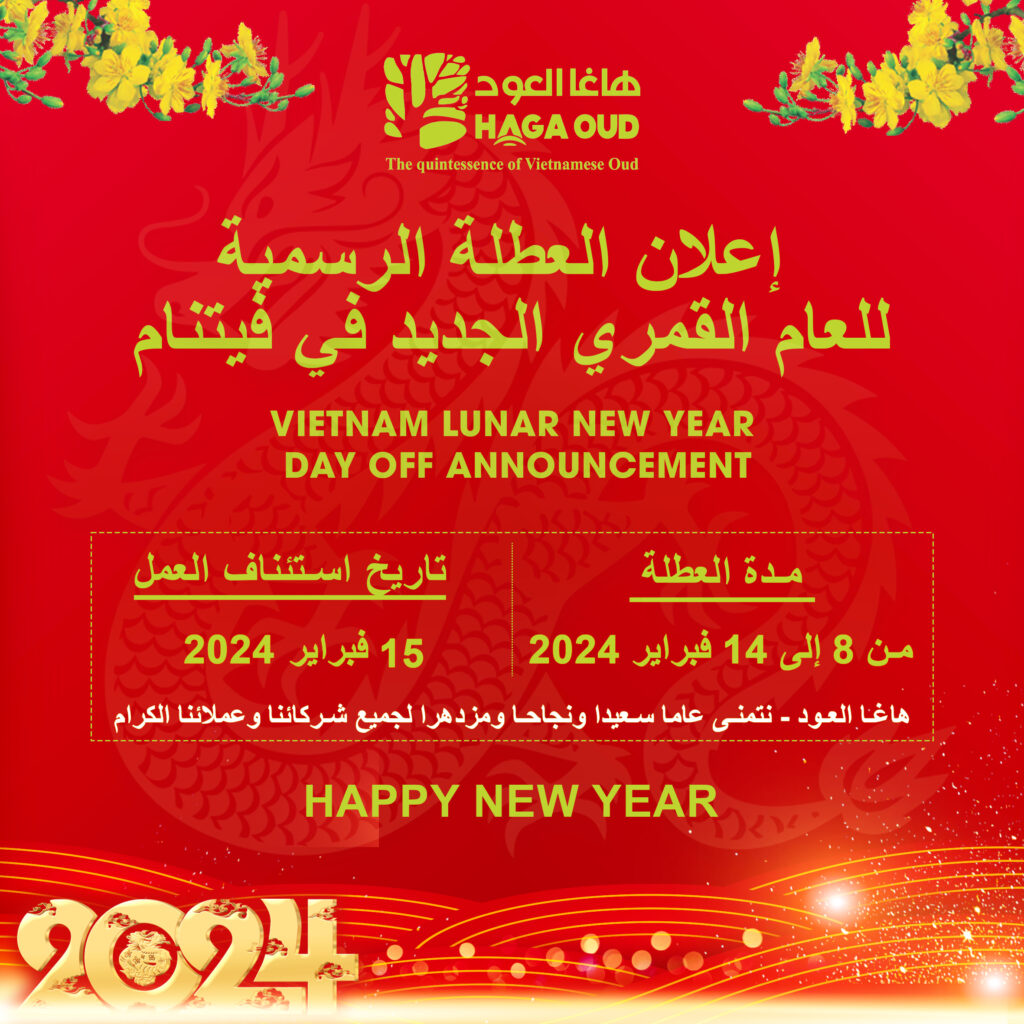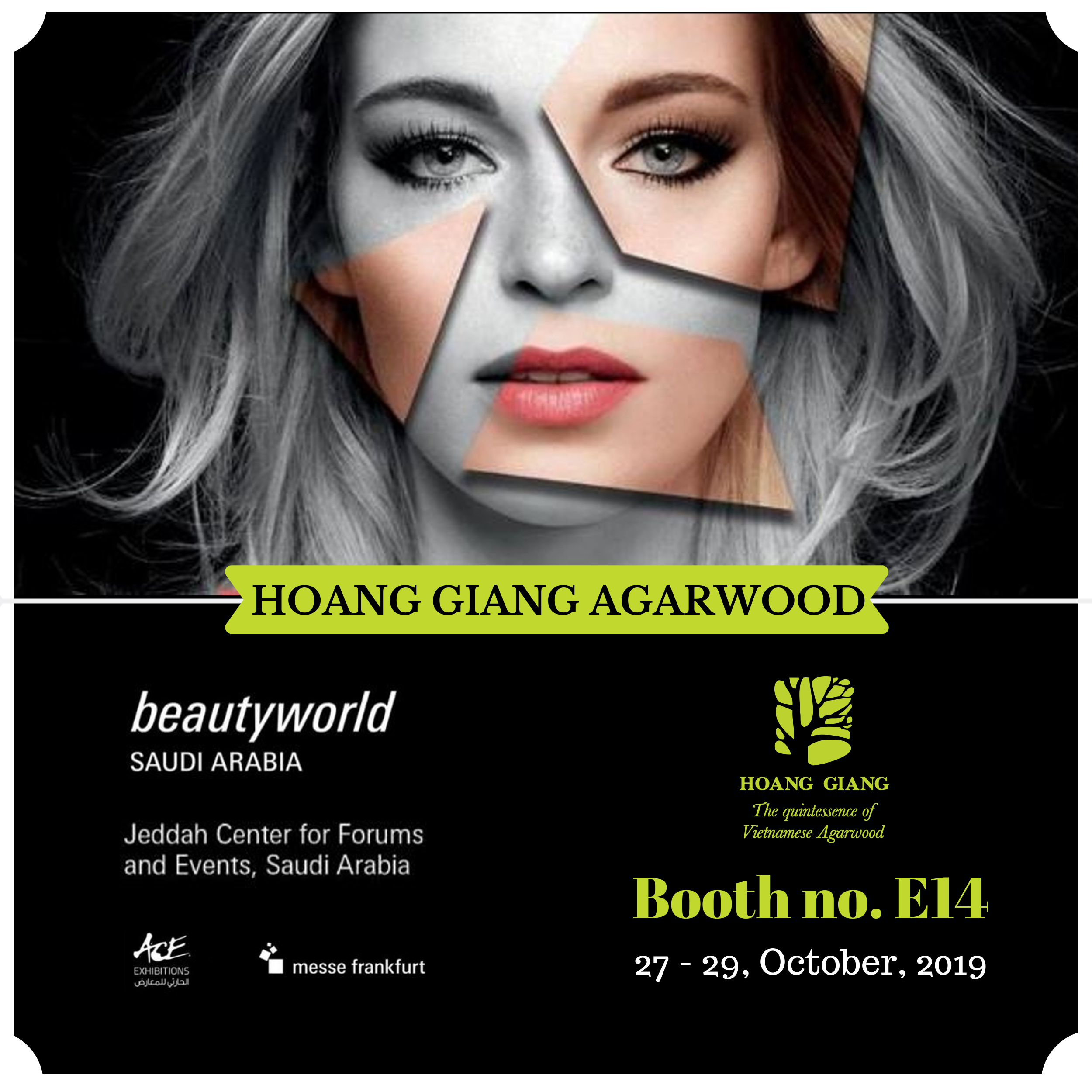How Asian used Agarwood/Oud in history?
Agarwood (Oud) has been considered a rare item for centuries in many civilizations such as Asia, Egypt and the Middle East. Throughout history, only powerful and wealthy kings can use Agarwood (Oud) or Agarwood (Oud) products. Today, Agarwood (Oud) has been widely used. Because of its rare and expensive properties, every product from Agarwood (Oud) is considered a luxurious gift.
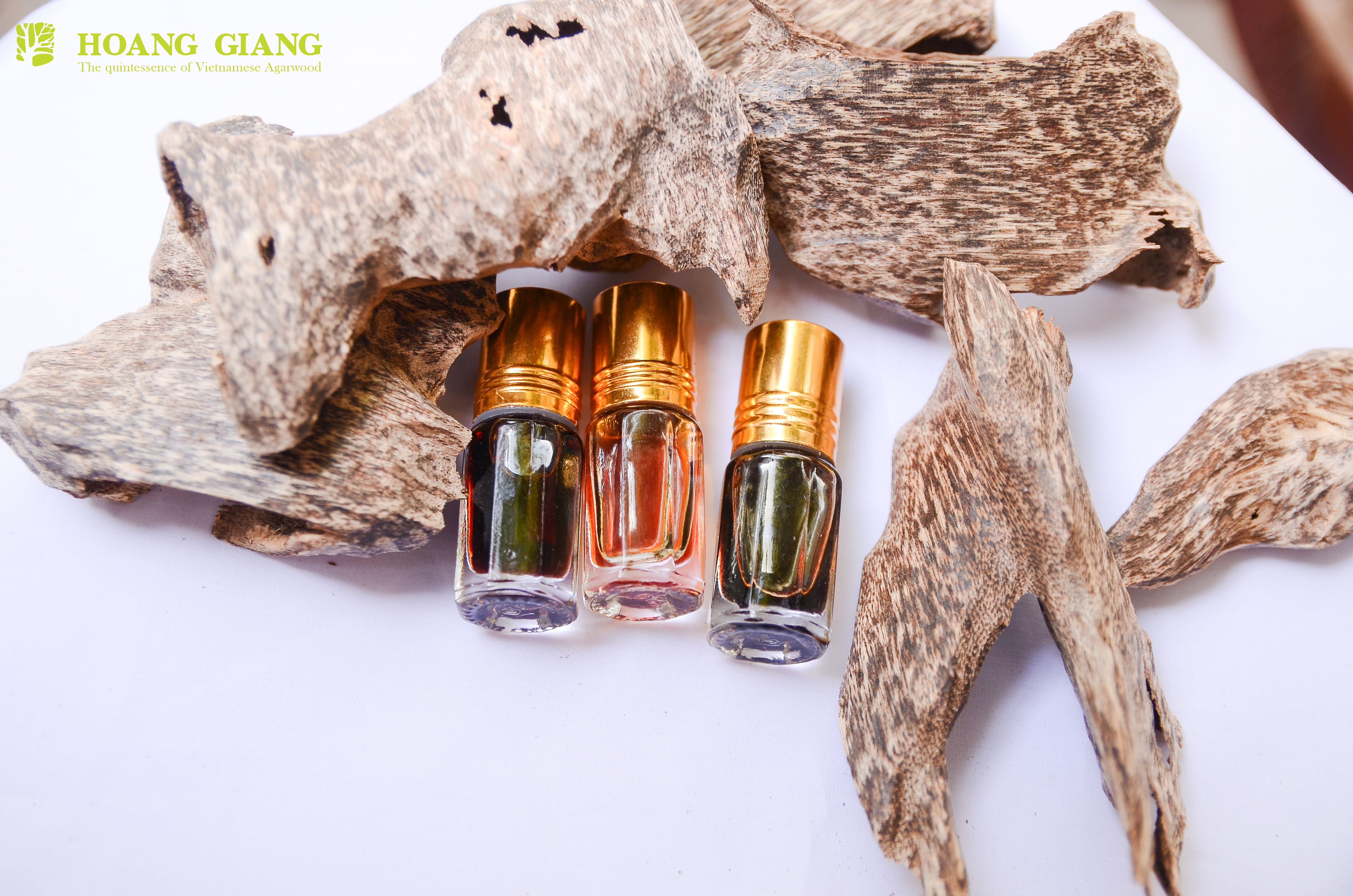
Agarwood (Oud) in China
In ancient China, rich people chose Agarwood (Oud) to make coffins. Of the three Chinese empires, King Yu Gwan (now the most flourishing dynasty) was deposed by the power wars that Cao Cao was his successor. At the request of Guan Yu, Agarwood (Oud) coffin was selected for burial of Guan Yu.
In another chapter, to pay homage to the death of Zhang Fei, Sun Quan put Zhang Fei’s head in a coffin made from Agarwood (Oud) and send it to Liu Bei.
In Buddhism, the precious beads of high ranked Buddhist monks are made of Agarwood (Oud), consisting of 108 beads. Legend has it a story about the spiritual values of high ranked Buddhist monks. High ranked Buddhist monks go everywhere in the country. Whenever someone is sick, the monks used their Agarwood (Oud) beads to treat the disease.
After Agarwood (Oud) beads are crushed, patients will recover by drinking Agarwood (Oud) crushed powder. The desire of high ranked Buddhist monks is that they can use all the beads before dying.
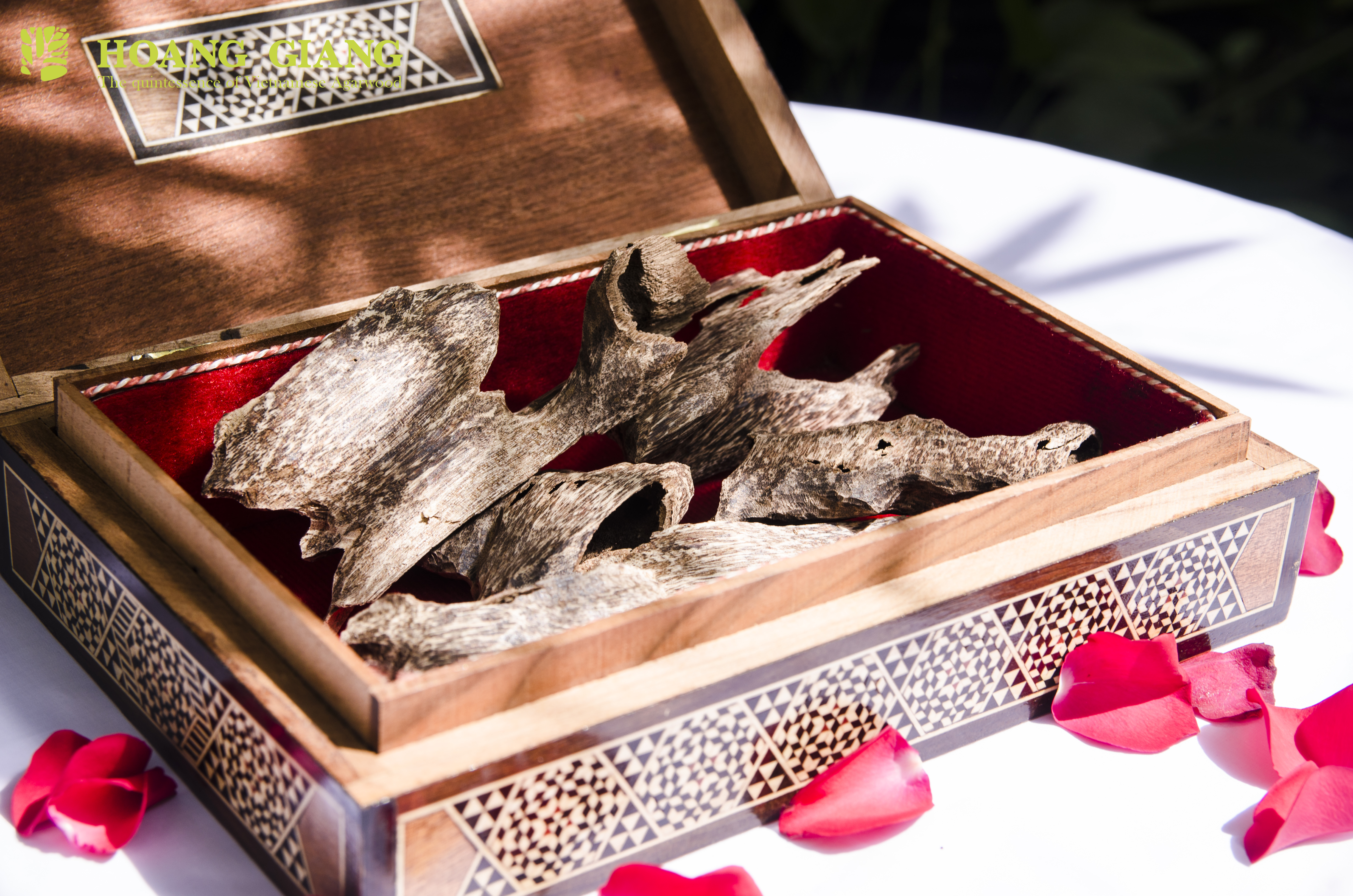
Agarwood (Oud) in Korea
King Mun Jong of Goryeo Dynasty used Agarwood (Oud) in medicine. The king suffered from rheumatism due to old age and he was treated by herbalists. However, the king became increasingly weak because of the cruel treatment. Until one day in a resort, the king asked the Chinese Emperor about traditional herbal plants. The Chinese emperor has sent hundreds of traditional herbal plants used to treat 88 different diseases. In the prescription, Agarwood (Oud) was at the top of the list and was used to treat King Mun Jong’s illness.
Prince’s bracelet: In 1542 AD, Prince Joong-Jong lost his bracelet made of Agarwood (Oud). However, the Prince was not worried about the loss because he was certain that the people who stole it would return it to the royal family, the bracelet would return to him because it was priceless. Exactly, the bracelet returned to the Crown Prince.
Rare and priceless of Agarwood (Oud): In 1524 AD, Prime Minister Jen Kim was seriously ill several times a week. Then came a man who brought a prescription with the main ingredient of Agarwood (Oud), asking permission to treat the Prime Minister. However, he said that it is impossible to sell Agarwood (Oud) in the market. After hearing this news, King Joong-Jong ordered the trade of Agarwood (Oud) for the purpose of treating the Prime Minister.
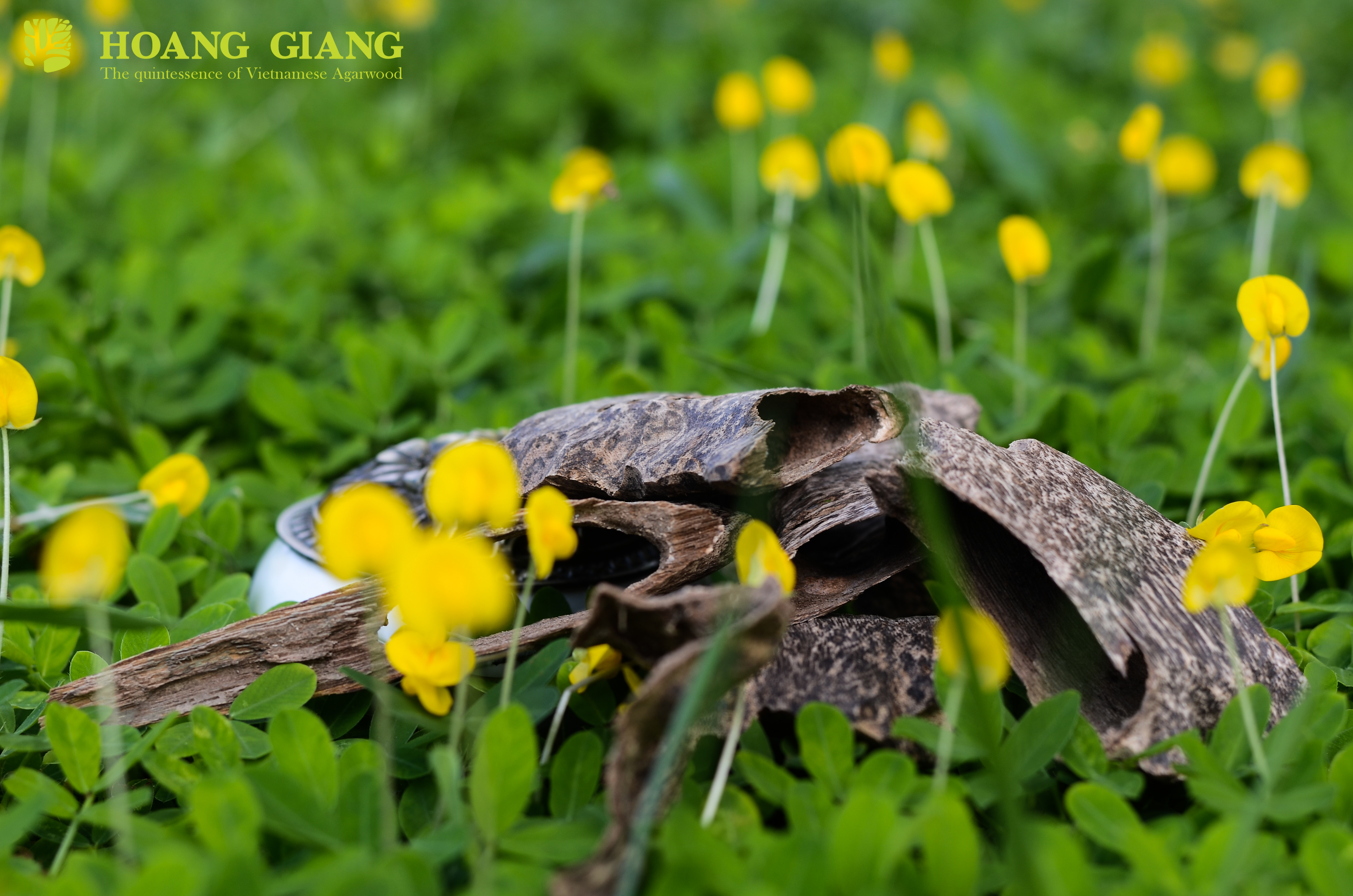
Agarwood (Oud) in Hongkong
Before the British colonial invasion in 1830, Hong Kong Island had only 7500 inhabitants, located in front of the Pearls River Delta. Therefore, at the Canton exit, only the city quibbles where the incense business could be authorized for foreigners.
For centuries, Aquilaria trees have been grown on Hong Kong Island to create a business relationship with not only various Chinese provinces but also Asia and even the Arabian. Hong Kong harbor is extremely important for the commercial incense industry. In addition, Hong means “incense, fragrance”, Kong means harbor port. Therefore, Hong Kong means the port of incense, or the harbor of fragrance.
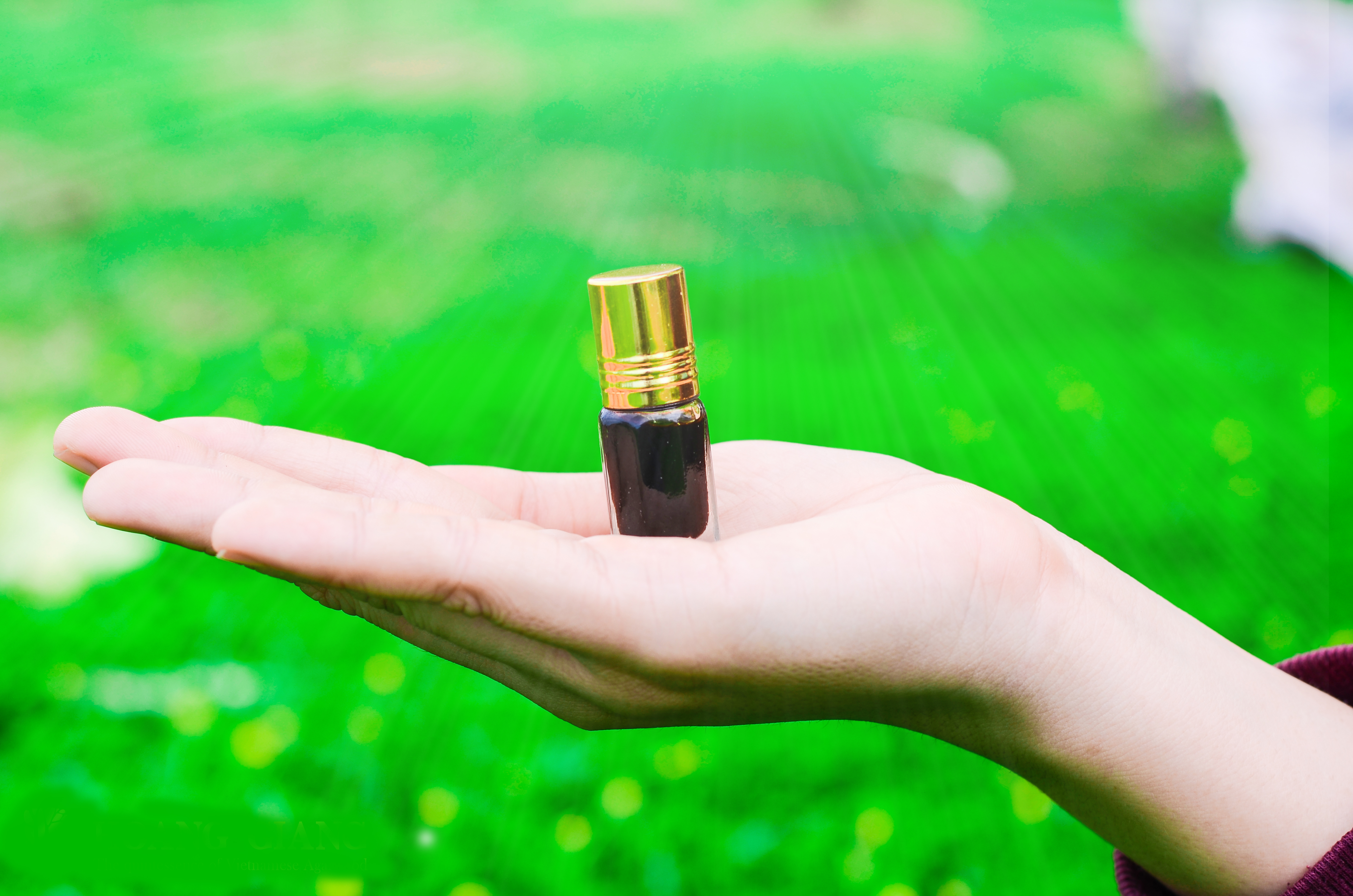
Agarwood (Oud) in Middle East
In the 4th century, Arab and Persian traders built buildings and shops in the outskirts of Canton, and Chinese tourists traveling through Fa-Hien noticed the wealth of the Agarwood (Oud) dealers from Hadramaout and Oman established in Sri Lanka. In the 6th century, the Greek geographer Cosmas Indicopleustes also encouraged trade between China, Sri Lanka and the Middle East, including large cargoes of Agarwood (Oud).
When Zayd ibn Hassan de Siraf pointed out in “Silsilat at Tawarikh” (9th Century Chronicle), 9th century Arab traders organized shipping trips from Bassorah to Canton to buy Agarwood (Oud). During the journey, two years of traveling, the dangers faced, such as shipwrecks and pirates, showed that Agarwood (Oud) is a very precious commodity and especially for Arabs.
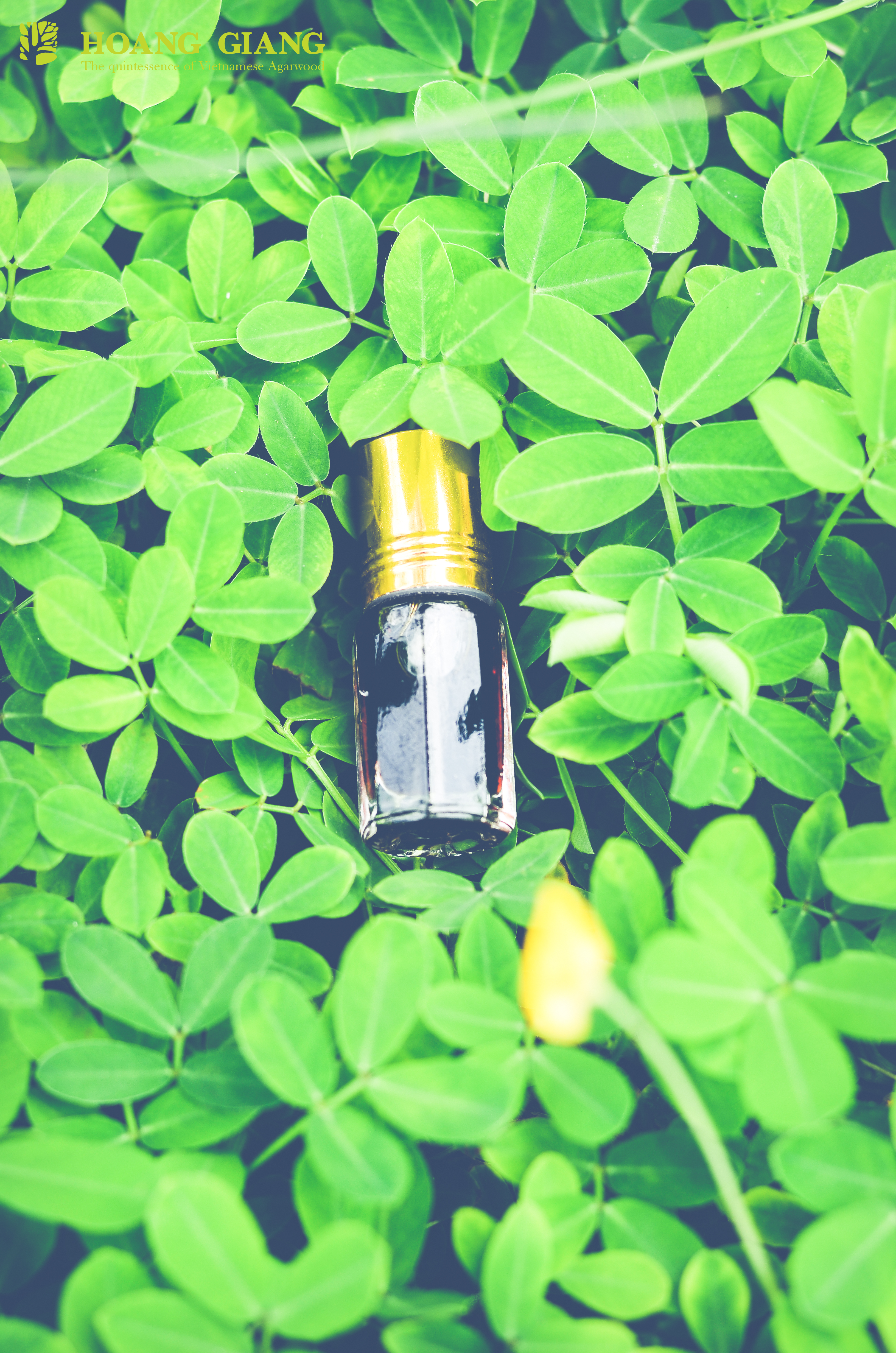
Agarwood (Oud) in India
In India, Agarwood (Oud) always occupies an important position in religious and cultural life. An Indian legend also said that when the Prophet Adam came close to the tree and realized that his body was exposed, he had covered the leaves of the Aquilaria tree to cover the tree, from which the tree created Agarwood (Oud). Therefore, he brought Agarwood (Oud) to our world when he was expelled from the Garden of Eden – With such roots, this plant is really a very exceptional plant!
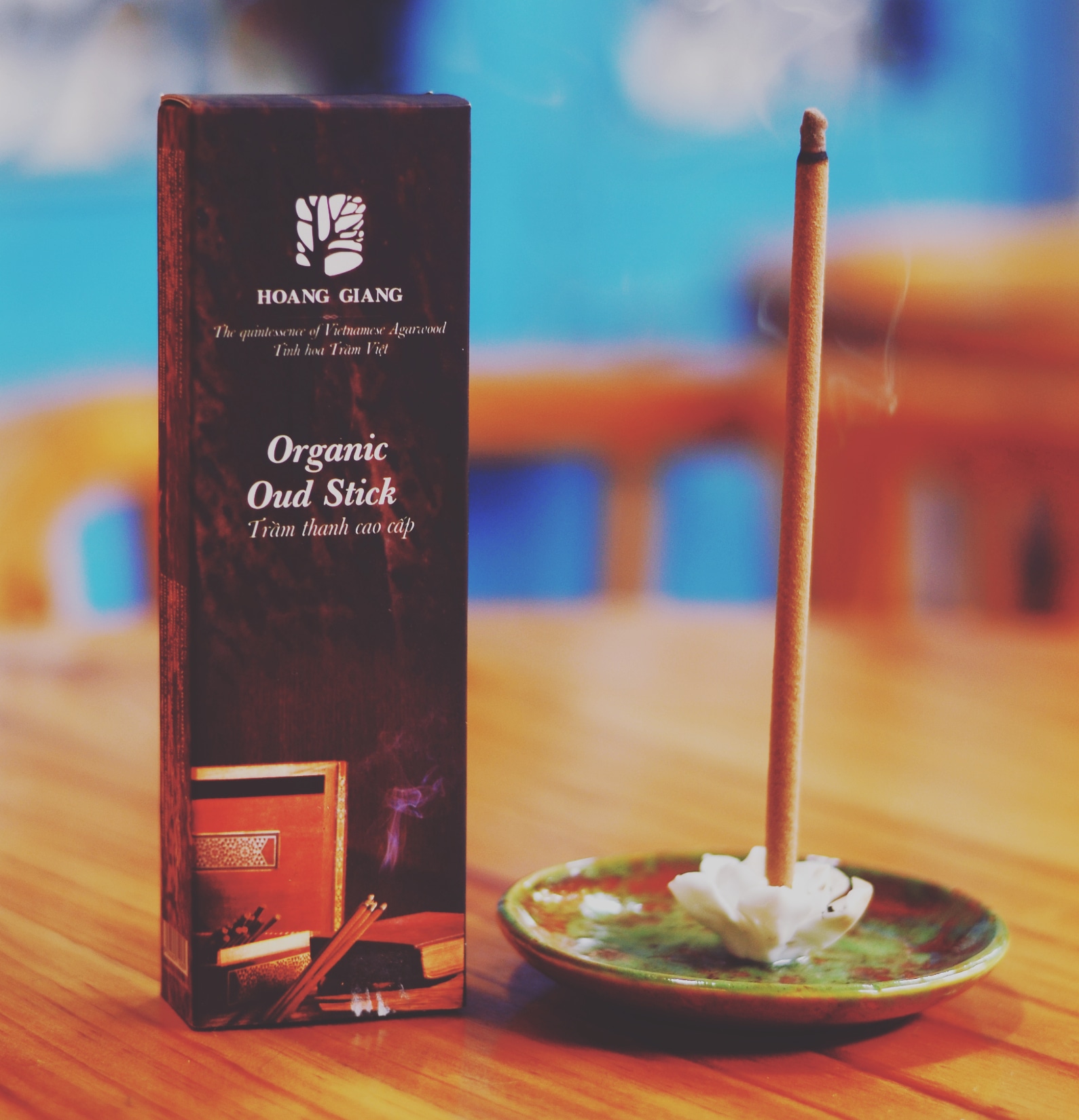
ISO 9001: 2015 certificated Agarwood (Oud) products, commit to production in accordance of Standard basic announced
On 08.05.2019, Hoang Giang Agarwood Co., Ltd has received an official copy of ISO 9001: 2015 certificate of Directorate for Standards, Metrology and Quality of AQS GLOBAL on product quality management, worldwide recognized for Agarwood (Oud) production and trading.
The ISO 9001: 2015 certificate of Hoang Giang Agarwood is valid for 3 years until April 25, 2022 and is periodically monitored and evaluated to ensure that Hoang Giang’s Agarwood (Oud) product quality always meets the standard certified.
ISO 9001: 2015 certificate assessed by a prestigious international organization is a safe quality assurance for all Agarwood (Oud) products of Hoang Giang, thereby helping customers and partners to feel secure when choosing and believing in Hoang Giang Agarwood (Oud) product in particular as well as Hoang Giang company in general.

LEAVE A REPLY below if you have any interest in making Hoang Giang Ltd. your best supplier. We always offer FREE SAMPLE for our customers.
See our products here
HOANG GIANG AGARWOOD CO., LTD.
Main office & Factory: Nguyen Minh Chau Street, Hiep Cuong Hamlet, Lagi Town, Binh Thuan Province, Vietnam.
Trade office: L40, Street No.11, Him Lam residential area, Tan Hung Ward, District 7, Ho Chi Minh City, Vietnam
Hotline: +84 973 770 639 (available on whatsapp & viber)
Email: info@hgagarwood.com
Website: hgagarwood.com
